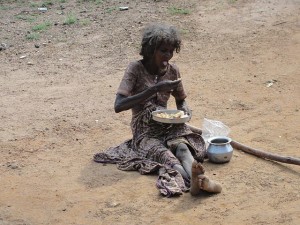For several generations the “social service” model defined the nature of helping the poor in the Global South and elsewhere. In this model the development industry provides relief and development “services” to aid the poor. Development workers go into poor communities and ask, “What do you need?” Then they provide resources and services to meet the need. Often the unintentional but tragic result is dependency.
Today a move is afoot to change the terms of the debate, or rather, to ask different questions. One reality driving this change is the failure of typical development programs, including programs that spend vast amounts of money. People are looking for other models.
The leading contender for replacing the social service development model is the entrepreneurial model. In this version, the poor are not seen as mouths to be fed, but image bearers of God. They may be living in economic poverty, but they are not poor. No, they have internal and external resources which, when properly stewarded, can move them to a place of human flourishing.
“What do you need?” is the wrong question. The better query is “What do you have?” That is, what do you have that can be used to improve your own life and the life of your family and community?
We have unpacked the concept of resources in the little (downloadable) book, Forest in the Seed.
The people most likely to change the terms of the debate are the folks at the Acton Institute’s Poverty Cure initiative. Their hard-hitting video illustrates how they are changing the discussion.
Poverty Cure is issuing a clarion call to reconsider the big-picture questions we ask about development. Instead of the typical question “What causes poverty?” we need to ask the question “What creates wealth?” At the heart of their message is the need to train “job makers” not ” job seekers.”
Similiarly, Chifuniro Kandaya, a businessman from Malawi, writes of the need to train entrepreneurs:
… lack of entrepreneurial business training has led to loss of Malawian labor force to other countries. For instance, in 2013, Malawi government offered 100,000 unskilled laborers aged between 19 to 40 to work in farms and factories in South Korea, Dubai and Kuwait. The initiative aimed at reducing unemployment. However, if the same people were equipped with entrepreneurial skills, they could have created jobs and contribute to the private sector growth.
Because of the lack of jobs in Malawi, the government was sending its people to other countries to find work. Kandaya calls instead for a program to equip young Malawians to start businesses that will create jobs.
Kandaya writes in a new online magazine called GEO. Their tagline is Investing in Entrepreneurs Globally. The magazine was co-founded by a good friend of mine, Norm Brinkley, the CEO of Global Entrepreneurs Organization.
Don Fredricks, the founder of Communities of Hope and a business startup trainer for GEO, writes in the inaugural edition of flagship magazine about fighting poverty from the inside up:
One of our initiatives is to assist entrepreneurs to flourish thereby bringing creative solutions to their community. Through our campaign “Fighting Poverty From The Inside Up!” we are conducting 4-day training events called: “What Is In Your Hand?” Using sound business principles and foundational biblical truth we seek to empower entrepreneurs to launch or expand existing small businesses.
Well-meaning people have spent billions of dollars on international aid, yet the return on investment has been dismal. It’s time for all who would help the poor to reflect on our programs and their results. Thank goodness for organizations like The Acton Institute and GEO, people who are willing to shift paradigms and programs to take more seriously the creative potential of people who are poor. We need to ask honest questions. We need to change the terms of the debate. We need to encourage the practice of principles that will actually release people to flourish.
- Darrow Miller






